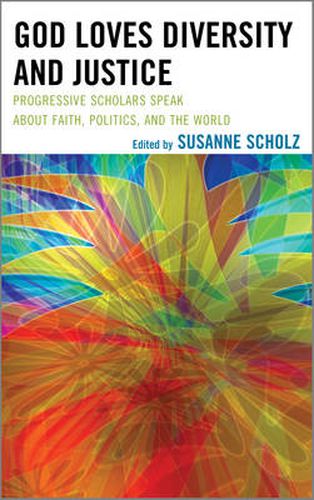Readings Newsletter
Become a Readings Member to make your shopping experience even easier.
Sign in or sign up for free!
You’re not far away from qualifying for FREE standard shipping within Australia
You’ve qualified for FREE standard shipping within Australia
The cart is loading…






Both personal and scholarly in tone, this book encourages readers to think theologically, ethically, and politically about the statement that declares: God loves diversity and justice. The multi-religious, multi-ethnic, multi-disciplinary, and multi-gendered identities of the eleven contributors and two respondents deepen the conversation. It considers questions such as: Do we affirm or challenge this theological statement? Do we concentrate on God in our response or do we interrogate what diversity and justice mean in light of God’s love for diversity and justice? Alternatively, do we prefer to ponder the verb, to love, and consider what it might mean for society if people really believed in a divinity loving diversity and justice? Of course, there are no easy and simple answers whether we consult the Sikh scriptures, the Bible, the Qur'an, the movies, the Declaration of Human Rights, or the transgender movement, but the effort is worthwhile. The result is a serious historical, literary, cultural, and religious discourse that fends against intellectually rigid thought and simplistic belief systems across the religious spectrum. In our world in which so much military unrest and violence, economic inequities, and religious strife prevail, such a conversation nurtures theological, ethical, and political possibilities of inclusion and justice.
$9.00 standard shipping within Australia
FREE standard shipping within Australia for orders over $100.00
Express & International shipping calculated at checkout
Both personal and scholarly in tone, this book encourages readers to think theologically, ethically, and politically about the statement that declares: God loves diversity and justice. The multi-religious, multi-ethnic, multi-disciplinary, and multi-gendered identities of the eleven contributors and two respondents deepen the conversation. It considers questions such as: Do we affirm or challenge this theological statement? Do we concentrate on God in our response or do we interrogate what diversity and justice mean in light of God’s love for diversity and justice? Alternatively, do we prefer to ponder the verb, to love, and consider what it might mean for society if people really believed in a divinity loving diversity and justice? Of course, there are no easy and simple answers whether we consult the Sikh scriptures, the Bible, the Qur'an, the movies, the Declaration of Human Rights, or the transgender movement, but the effort is worthwhile. The result is a serious historical, literary, cultural, and religious discourse that fends against intellectually rigid thought and simplistic belief systems across the religious spectrum. In our world in which so much military unrest and violence, economic inequities, and religious strife prevail, such a conversation nurtures theological, ethical, and political possibilities of inclusion and justice.